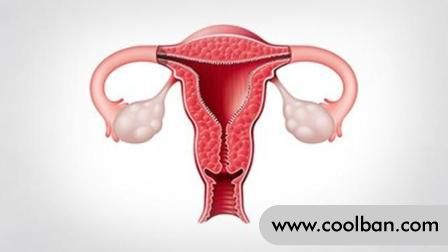What are the symptoms of uterine bleeding in women?
Uterine bleeding is an abnormal uterine bleeding phenomenon unrelated to menstruation. It is a common disease in women, but it is very harmful to women's health. Therefore, the cause should be identified and treated in time. There are many reasons for uterine bleeding, including systemic diseases, diseases of the uterus itself, mental factors, and dietary factors. Taking certain drugs and placing an intrauterine ring may also cause symptoms of uterine bleeding. So what are the symptoms of uterine bleeding and how to prevent it?

Symptoms of uterine bleeding
1. Irregular menstruation
Healthy women's menstrual cycle and daily menstrual flow from less to more and then from more to less is like a parabola. It is very regular, but women with uterine bleeding often experience irregular menstruation. Menstrual flow is not only Very large and sometimes the menstrual period will extend beyond 5-7 days. But there are other women whose menstrual flow is very small and the cycle is very long. Irregular menstruation is usually the main clinical manifestation of uterine bleeding and should not be taken lightly.
2. The symptoms of anemia are more obvious
Anemia is also often a symptom of female friends suffering from uterine bleeding, which is mainly caused by excessive menstrual blood loss. Severely anemic women with pale complexion may also experience symptoms such as dizziness and shortness of breath. Some female friends also have symptoms such as edema and loss of appetite. Therefore, the symptoms of anemia after uterine bleeding should be replenished in time, otherwise it will lead to chronic anemia.

3. Abnormal symptoms of reproductive organs
Uterine bleeding may also sometimes affect the hormone levels in women's bodies. Because the bleeding will increase, it will lead to excessive hormone excretion. When women have abnormal hormone levels, women will experience breast pain and abdominal distension. Abnormal hormone levels can also affect women's emotional expression, such as emotional agitation. series of symptoms.

4. Changes in body temperature
Healthy women will ovulate normally more than ten days after each menstrual period. During ovulation, the body temperature of women will be slightly higher, but the body temperature of women with uterine bleeding often does not change. This is also a typical symptom of uterine bleeding. Women can check their temperature to understand their condition.
How to prevent uterine bleeding?
1. Maintain physical and mental health:
Staying healthy is a major part of avoiding bleeding. Pay attention to moderate work and rest, do not participate in heavy physical labor and strenuous exercise, and sleep well and be happy. In the case of heavy work pressure, you should pay attention to transferring the pressure and choose the right time to relax yourself, so as not to affect the endocrine system for a long time.

2, the diet should be light:
Eat fresh vegetables and fruits rich in vitamin C.

3. Avoid overeating:
In order to avoid damage to the spleen and stomach, do not eat spicy and cold things to maintain a balanced nutrition.
4. Menstrual health food:
Premenstrual health foods include rice, celery, cabbage, oranges, leeks, etc.
Post-menstrual health foods are carrots, milk and so on.
Before and after the menstrual period, you can eat edible kelp, dried dates, tofu skin, sorghum, coix seed, mutton, apples, etc.
5. Things not to eat during menstruation include:
During menstruation, the resistance is weak. Do not eat cold and spicy foods such as bananas, pears, horseshoes and other cold foods. Pepper, cinnamon, pepper, cloves, peppers and other spicy foods, such as wax gourd, water chestnuts, bracken, kale, black fungus, etc., damage the spleen and stomach or kidney qi food.
6. Strengthen health care:
Pay attention to menstrual hygiene. In addition to preventing systemic diseases, it is also necessary to pay attention to menstrual hygiene, daily cleaning and frequent replacement of menstrual pads and underwear. Try to avoid excessive stress, and pay attention to the moderation of work and rest.
Usually pay attention not to wading in the rain and wet clothes should be replaced in time to avoid the invasion of cold evil, to prevent cold blood from stagnation and stasis, which may cause dripping or even heavy bleeding.
Female friends should protect themselves in their usual diet and daily life, and then cooperate with the doctor's treatment to get rid of the disease as soon as possible and become a perfect and healthy woman.
